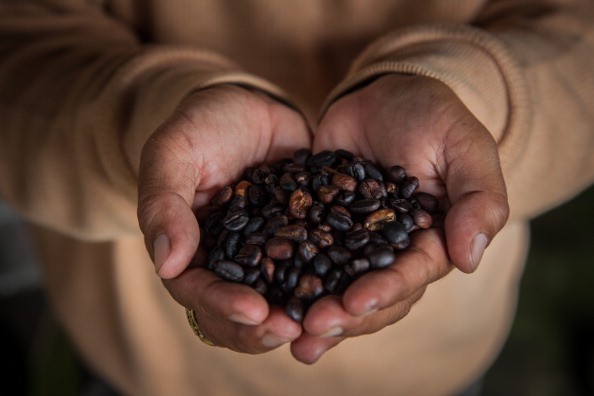-
Tips for becoming a good boxer - November 6, 2020
-
7 expert tips for making your hens night a memorable one - November 6, 2020
-
5 reasons to host your Christmas party on a cruise boat - November 6, 2020
-
What to do when you’re charged with a crime - November 6, 2020
-
Should you get one or multiple dogs? Here’s all you need to know - November 3, 2020
-
A Guide: How to Build Your Very Own Magic Mirror - February 14, 2019
-
Our Top Inspirational Baseball Stars - November 24, 2018
-
Five Tech Tools That Will Help You Turn Your Blog into a Business - November 24, 2018
-
How to Indulge on Vacation without Expanding Your Waist - November 9, 2018
-
5 Strategies for Businesses to Appeal to Today’s Increasingly Mobile-Crazed Customers - November 9, 2018
Coffee Production May Drop 50 Percent Thanks to Climate Change
Climate change could reduce global coffee production 50 percent by 2050, endangering the livelihoods of more than 120 million of the world’s poorest people.
Advertisement
Additionally, it juxtaposes the threats to long-term global supply with the incremental but steady rises in historical consumption, furthering the notion that the relationship between supply and demand will become increasingly imbalanced.
A $19 billion (US) industry, coffee production has tripled in volume since the 1960s and is still growing at a rate of 5 per cent annually.
The effects of climate change on coffee production are already being seen in some places.
A full half of the world’s area that’s deemed suitable for growing coffee will be lost by 2050 if climate change remains unchecked, according to the report.
Even a half a degree of temperature change can make a region that used to be a coffee gold mine unsuitable.
The Climate Institute recommended that coffee farmers move to higher ground or further away from the equator to better cope with challenges posed by shifting climate conditions.
Climate change is already impacting coffee crops around the world, according to the report by the Climate Institute, commissioned by Fairtrade Australia & New Zealand.
“It’s not just the heat, which is a big factor which is driving some of the regions where coffee is produced uphill”, John Connor, Climate Institute’s chief executive officer, told ABC.
Even the relatively smaller shift from Brazil’s shortage in the last couple years resulted in a price surge and a jump in counterfeit coffee beans (which pretend to be fancier coffee varieties than they are). “It’s no longer about the future; it’s the present”.
Advertisement
Not only will global warming cut down the produce, the quality of coffee beans is also predicted to suffer from a more bitter after taste. “If we sit by and wait until the impacts of climate change are so severe that is impacting our supply chain, then that puts us at a greater risk”. Buying coffee from groups that provide fair incomes to farmers can help those communities adapt. These included consumers purchasing brands that are carbon- or climate-neutral, and demanding action from coffee companies and governments to ensure that “all products, business models and economies are carbon or climate neutral”.




























